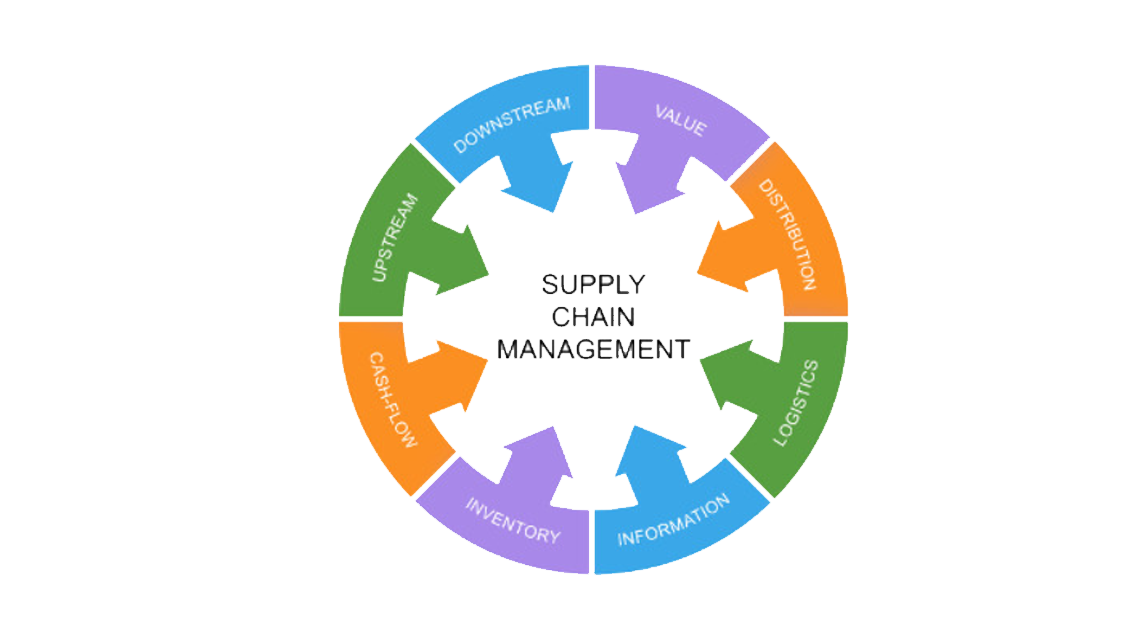From the procurement of raw materials to the delivery of a product to a customer, B2B supply chain management (SCM) includes all stages of commerce. This process includes manufacturing, warehousing, inventory tracking, and order management. In eCommerce, SCM crucially connects clients and suppliers at the platform's interface.
To establish a thriving B2B eCommerce SCM, businesses must adopt effective strategies and techniques that advantage both themselves and their clients. In the B2B sector, where transactions happen among businesses and goods might be further distributed or used in additional manufacturing, efficient SCM is essential. It allows the SCM system of one company to seamlessly integrate with another's, fostering interdependencies.
Effective supply chain management in e-commerce means optimizing several aspects:
- Building stronger relationships with suppliers
- Anticipating demand spikes or declines in advance
- Automating business processes
- Implementing "smart" inventory management
Successful optimization involves addressing your customers' challenges, especially in online shopping. Enhancing visibility across your supply chain and ensuring accuracy of data company-wide make your e-commerce strategy effective. A well-managed supply chain, combined with the necessary data, offers an online sales and revenue channel that maximizes transparency and communication, leading to profitability and success. It also enables your company to save costs and generate more revenue.

The expansion of e-commerce significantly impacts supply chain management by increasing the demand for just-in-time delivery, pressuring suppliers to deliver products more quickly and efficiently. It simplifies the shopping process compared to offline shopping, intensifying price competition among suppliers. Additionally, e-commerce opens new avenues for companies to connect with consumers in innovative ways, allowing businesses to sell products directly to consumers without traditional retail intermediaries.
The Direct Impact of E-Commerce on Supply Chain Management
E-commerce streamlines supply chain management by enabling electronic document exchanges among transportation companies, simplifying document management for shippers, freight forwarders, and trucking companies without significant financial or time investments.
It reduces costs, improves data accuracy, streamlines services, shortens business cycles, and boosts customer service. The convergence of technology, globalization, and e-commerce allows businesses to enhance connectivity and speed up transactions. Technological advancements enable instant communication with customers, effectively meeting their needs and analyzing their shopping behaviors.
E-Commerce has increased the supply chain's flexibility and efficiency.
Businesses can easily gather information about customer needs and preferences, sell products online, reach a broader audience, and deliver products swiftly at reduced costs.
E-commerce serves a dual role in supply chain management.
Businesses can use e-commerce to directly sell to customers through their websites or online marketplaces such as Amazon or eBay. E-commerce platforms also allow shoppers to buy products and raw materials directly from manufacturers, dealers, and distributors. Likewise, customers can purchase directly from suppliers via their websites or platforms like Alibaba or AliExpress.
In the drop shipping model, businesses that use e-commerce to buy and sell products can bypass traditional supply chain management. When a retailer receives an order, their website immediately sends it to the manufacturer or distributor, who then ships the product directly to the customer. The retailer's primary duties involve collecting payment from the customer and paying the supplier.
Below listed are the advantages of e-commerce in supply chain management
Streamlined Operations: eCommerce enhances communication across various stages, minimizing delays in shipments, and preventing delays in development and production lines.
Enhanced Visibility: Inventory management ensures the effective tracking of the supply chain from manufacturing to delivery, increasing visibility at every stage.
Stock Availability and Customer Trust: Efficient eCommerce SCM predicts stock levels accurately, connecting customers with available inventory, thereby building trust and empowering buyers.
Improved Customer Experience: Advanced eCommerce SCM systems enhance customer satisfaction by offering superior browsing experiences and ensuring timely deliveries.
Increased Profitability: Effective SCM systems pinpoint operational inefficiencies, cutting costs, minimizing errors, and reducing delays, which boosts profitability.
Multiple Payment Methods: eCommerce platforms support diverse payment options, including PayPal, credit cards, cryptocurrencies, and installment plans, catering to various customer preferences.
Transparency in Product Information: eCommerce provides detailed product information, empowering consumers and encouraging competition among businesses.
Product Availability and Service Levels: Achieving a 95% service level maintains customer satisfaction and avoids losing potential customers due to delivery delays.
Convenient Product Display: eCommerce makes displaying products easier, lowering inventory costs and providing customers with easy access to a broad selection of items.
We understand the pivotal role e-commerce plays in modern supply chains. Our expertise in developing e-commerce websites is centered around creating solutions that enhance supply chain operations. Our approach involves:
Customizable Platforms: We develop e-commerce websites that are fully customizable, allowing for seamless integration with your existing supply chain management systems. This ensures that data flows efficiently between sales and supply, improving reaction times and accuracy.
Scalability and Flexibility: Our solutions are designed to grow with your business. Whether you're expanding product lines or scaling operations globally, our platforms adapt to your changing needs.
Advanced Analytics: With our sophisticated analytics tools, gain insights into customer behavior, inventory turnover, and logistics performance. These insights are crucial for making informed decisions that optimize your supply chain.
Integrated Inventory and Order Management: We ensure that your e-commerce platform is integrated with top-tier inventory and order management systems, enabling real-time visibility and control over your supply chain operations.
Robust Security: Recognizing the importance of security in e-commerce, we implement advanced security protocols to protect your data and build trust with your customers.
E-commerce is not just a sales channel, but a strategic asset in modern supply chains. By leveraging our expertise in developing advanced e-commerce websites, businesses can ensure they are not only meeting but exceeding customer expectations, while optimizing their supply chain operations for the digital age. Let us help you transform your e-commerce presence into a powerful engine for supply chain innovation.






